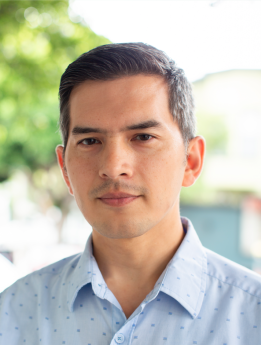
Associate Scientist
Ph.D., Psychology, University of California, Berkeley
M.A., Psychology University of California, Davis
B.A., Psychology, University of California, Davis
Participate in our studies! Visit Teng Lab Experiment Participation for details.
Hello! I'm an Associate Scientist at Smith-Kettlewell, where I investigate auditory spatial perception, haptics, echolocation, and assisted mobility in sighted and blind persons. Previously, I completed my Ph.D. at UC Berkeley and postdoctoral work at MIT, where I remain affiliated.
(H/h)
